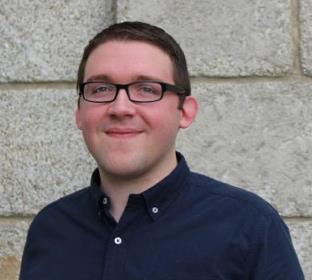Wrongly perceived costs and widespread misconceptions about Test-and-Trace could deter people from arranging a test if they experience symptoms.

Dr Shane Timmons of the ESRI’s Behavioural Research Unit.
Almost 50% of people do not know that calling their GP to discuss symptoms of COVID-19 is free, and over 33% think they could be charged for a test, according to new research by the ESRI.
The findings are based on a nationally representative survey of 1,000 adults in Ireland run in early July, which examined public understanding of the COVID-19 Test-and-Trace system to identify potential barriers to engagement.
Respondents were asked about each stage of the process, from arranging a test to getting results and notifying close contacts if necessary. The study found overwhelming public support for the system, but just 3% were able to answer all comprehension questions correctly.
Negative Perceptions
The survey also found that a majority held negative views about those who test positive for COVID-19. Despite how easily the virus spreads, over 70 per cent of people across all socio-demographic groups believed that someone who contracts COVID-19 has been careless or reckless in following public health advice. Fear of being blamed may be a barrier to arranging a test quickly when symptoms appear.
Younger adults were more likely to be affected by the issues identified. People in their 20s and 30s were less likely to know the GP consultation is free, more likely to believe getting tested would be a hassle and uncomfortable, more pessimistic about result wait times and more worried about being identified by their close contacts.
If you have symptoms, don’t delay
“The public overwhelmingly agrees that the Test-and-Trace system is vital for controlling the spread of COVID-19,” said Dr Shane Timmons of the ESRI’s Behavioural Research Unit.
“But misconceptions about the system could mean people don’t seek a test as quickly as possible. You should call any GP or out-of-hours service straight away if you suspect that you might have symptoms – doing so is free and can help make sure you don’t spread the virus to someone else.”
The new research paper is supported by the Department of Health and is part of a research programme undertaken by the Behavioural Change Subgroup of the National Public Health Emergency Team (NPHET).
The research paper can be accessed here.
SOURCE: Materials provided by ESRI
Note: Content may be edited for style and length.
School Leader Wellbeing and Workload during COVID-19 Lockdown